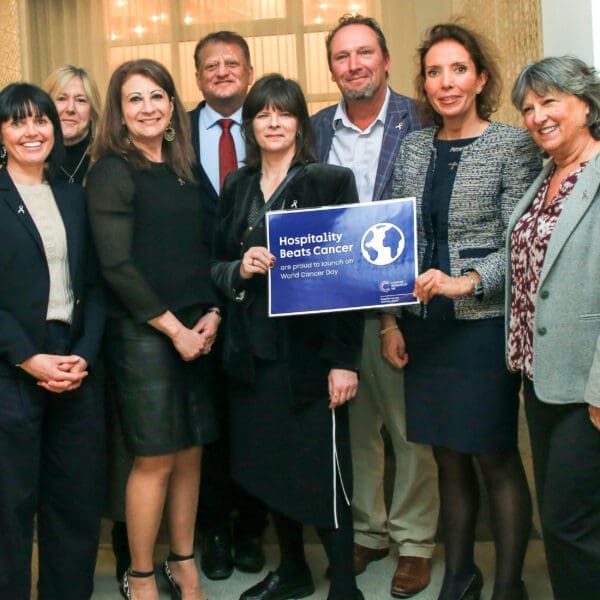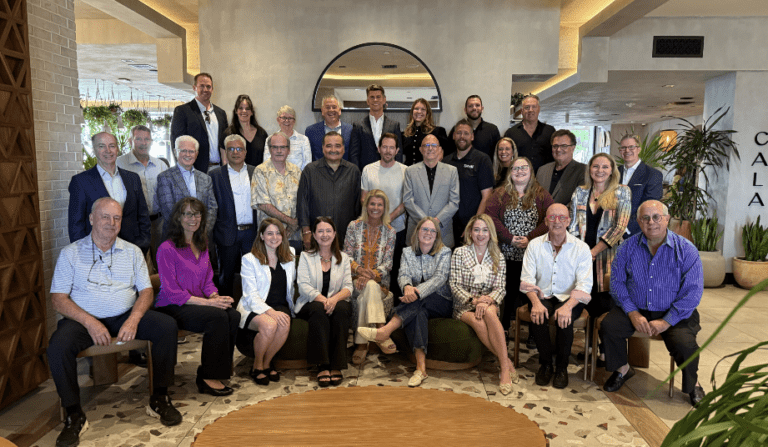
The world is a very different place from what it was a week ago, and it will be a very different place in six months time. The disruption, the discontinuity and the very upheaval to the social fabric of society has changed all of our lives completely. There is no “normal” and those who may suggest there will be a return to normal are just soothsayers. The developed business models over the last decades are fractured and will have to be completely reconsidered in the post COVID-19 world. Analogies with world wars are closer to the truth.
How can the hospitality industry look beyond the immediate reaction of business survival to understand how their long term interests and those of government and society are actually one of the same? How can the industry contribute to help to overcome the world’s ‘state of emergency’?
Many business decisions are now out of businesses’ hands. We are responding to government decree, shutdowns, enforced quarantine, and even if still being allowed to be open, few, if any, customers. Where governments are now providing emergency measures to help businesses survive, do we not have a moral and social responsibility to be asking ourselves how can we help our communities and society?
It’s worth just taking a step back and reflecting on what “hospitality” is. Hospitality is more than an industry definition such as the service of food, drink and accommodation. Hospitality is a concept and an obligation, not just a word that we use to describe a whole variety of different commercial contexts. Hospitality is often described as “offering hospitality services”. This has come to mean a commercial transaction, whereas originally hospitality was based on generosity, a warm reception, special care for a guest, good intentions and the willingness to help others.
There can be no better time for the industry to work with others and demonstrate its core values. There are already examples of hotels and restaurants offering services to support the vulnerable and the needy. This altruism needs to be recognised and applauded.
Regrettably, their are also some examples of abhorrent behaviour by hotels which have immediately released live-in workers and made them leave their accommodation. It is this widely publicised attitude that creates a very bad impression of the industry.
What is needed now is a strong moral compass and industry leadership that shows how we are positively responding to an unprecedented social need. We need moral behaviour that shows how the industry can and should make a contribution to society that needs support to help alleviate the crisis everyone is now facing. To quote from many sources: “this is a marathon, not a sprint”.
What are the greatest needs beyond medical services and medical supplies? The basic requirements of security, shelter and food. Much will be done by governments to ensure that these basic needs are met, but not all within societies have access to those necessities, especially when self isolation, social distancing and quarantine have to be introduced to protect populations.
If we consider the basics of the hospitality industry, they are the provision of food, drink and accommodation. These are traditionally being delivered within the physical facilities of hotels, restaurants, bars and venues. When this is no longer possible, how can those facilities be utilised for the benefit of the of the communities they serve?
One key feature must be to try to preserve those facilities for the post COVID-19 environment. When fear of social contact has diminished, there will be a natural increased demand from people wanting to emerge from social isolation into social contact. Those facilities are best preserved by being staffed, maintained and providing services.
The pressure on the health services is more than just on high-dependency intensive care. There are many longer stay patients who require far fewer medical interventions. One thing that hotels have in abundance are beds and the staff to ensure that they are properly cleaned, well maintained and that the occupants of those beds can be properly fed. In the previous world wars, many hotels became convalescent homes for the sick and the wounded of the war. Some hotels are already making accommodation available to health workers. Is now the time for hotels be offering their facilities for those not requiring intensive medical support, but who do require some form of convalescent or non-urgent hospitalisation? Obviously care would have to be taken to ensure social distancing, but these options are all possible.
Catering companies should be working together to pool resources to provide a range of meal options for the vulnerable in society. Many are offering takeaway or delivered services within their traditional commercial model, but those who would otherwise be servicing businesses which have less demand could be using their spare capacity.
The complexities of business relationships, legal positions and contractual obligations suggest that this type altruistic approach should not be possible. However, we are not in normal times and my argument is one of coordinating action now and working out the financial model later – especially if governments are underwriting elements of costs, including staff costs. Trying to maintain the same commercial mindset is not a sustainable option. Changing the mindset to the core values of hospitality and demonstrating the role the industry can play in times of crisis now will enhance its value to society in the future.
The opinions expressed are entirely those of the author.


















